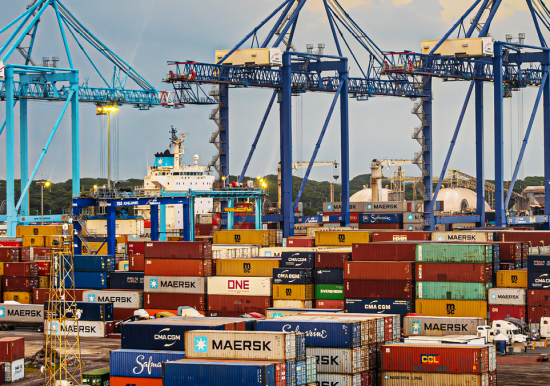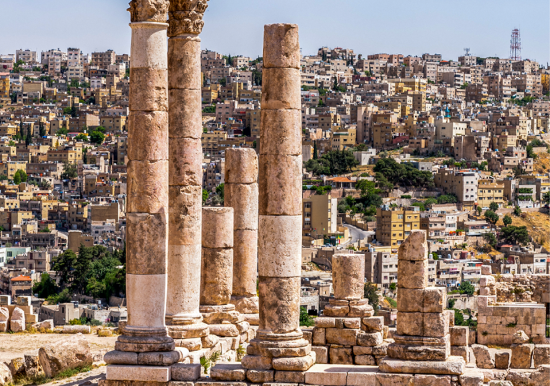
Achieving Better Health Outcomes in Thailand
Thailand moved up 22 spots in the 2023 Chandler Good Government Index to rank 33rd globally for Health. The World Health Organization (WHO) recognised Thailand’s success in managing the COVID-19 pandemic, and has been working with its government to document lessons for future health emergencies. We speak with Deputy Prime Minister and Minister of Public Health Anutin Charnvirakul to understand Thailand’s approach to building healthcare and community resilience.
In your view, what were some of Thailand’s strengths that contributed to a successful pandemic response?
Anutin Charnvirakul: First and foremost, we are so grateful to the Royal Family of Thailand. Our current King’s grandfather has been honoured with the title of “Father of Modern Medicine and Public Health of Thailand”. His initiatives and efforts produced the most remarkable and lasting impact on the advancement of modern medicine and public health. The King’s grandmother was also a steward of public health in her role as a nurse. So, our healthcare system has been highly recognised and well-supported by Thai society.
Political commitment plays a major role in our pandemic response. Thailand has a strong tradition of public health development dating back almost 100 years. The foundations of our public health are taken seriously by the country’s administration. We have full political support, from the top office down to all coalition members.
We also have a countrywide network of public health and medical supplies. Thailand is probably one of the few countries in the world with a public hospital in every district, with almost 20,000 hospitals across the nation. More than half of our country’s best and brightest students attend medical school and pursue a public health-related education.
Since it was established in 2001, our national health security system has also been made available to all Thai people equally. The public appreciates this, and in return, they readily cooperate with the government.
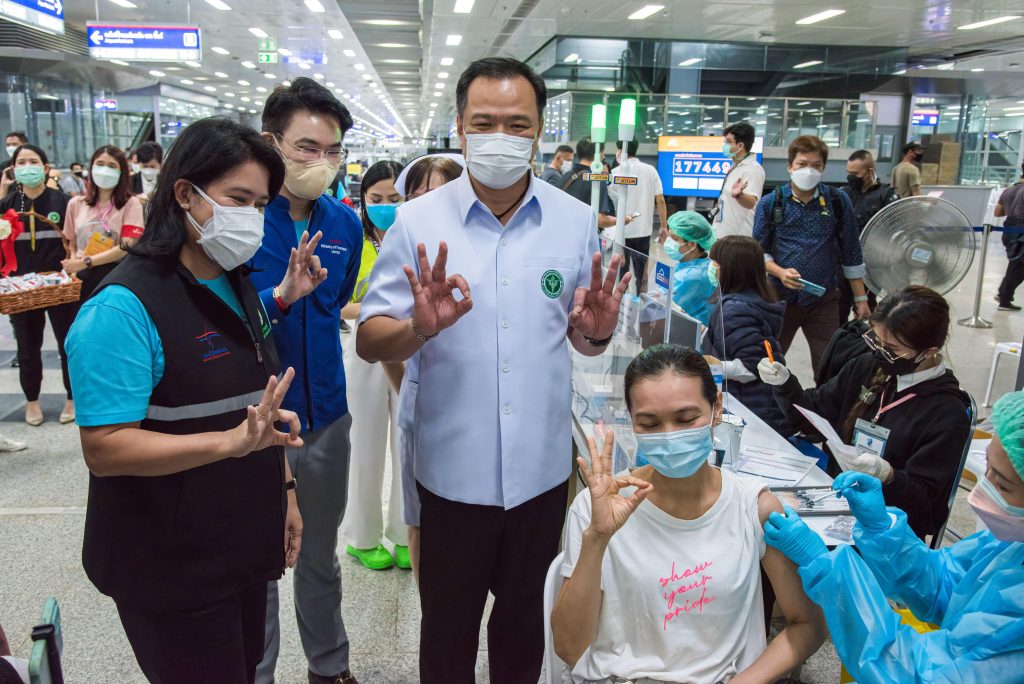
As a result of these factors, we enjoyed strong political support, public cooperation, and access to good knowledge and resources during the COVID-19 pandemic. We had also prepared ourselves to be self-reliant on medical supplies, so these were readily available for our people at the height of the pandemic. Our local pharmaceutical manufacturer even worked with AstraZeneca to produce vaccines.
Based on Thailand’s experience, what lessons can we learn about crisis management from the pandemic?
One lesson we learnt from the COVID-19 pandemic is that no one can stand alone. Cooperation between countries is the key. We must make sure that rich countries help poorer countries. Poorer countries that have difficulties in gaining access to medical supplies should be given priority, because the people from these countries travel globally, and are often the ones who provide labour to wealthier countries. If not vaccinated, they may carry the infection elsewhere.
Thailand understands the importance of regional cooperation. When we signed the joint venture agreement with vaccine manufacturers, one condition we agreed on was that Thailand would treat ASEAN (Association of Southeast Asian Nations) countries as our supply domain. Thai-manufactured vaccines would not be used solely in Thailand, and prioritised for Thai people only. When we distributed the first batch of vaccines, Thai people asked why our government did not secure vaccines for ourselves first but let them go to our neighbouring countries. I had to explain that, as the WHO has argued, “No one is safe, until everyone is safe.”
Based on this principle, we were able to persuade our people to receive at least four doses of COVID vaccinations—more than other countries—in line with the research that it greatly reduces the risk of serious illness and death. We had to make sure everybody was protected before letting them perform any activities that would expose them to contact with other people.
In summary, we walked the talk of “no one is safe, until everyone is safe”.
The mobilisation of over a million local volunteers was key to Thailand’s pandemic response. What is the role of these volunteers in Thailand’s healthcare system?
We have over one million village health volunteers (VHVs) who aid the Ministry of Public Health in its work. The VHV is an official scheme. A Ministry department looks after their welfare and administration, and VHVs receive training and some compensation for their contribution to society.
During the peak of the pandemic when we had a lockdown and people were required to stay home, it was the VHVs across Thailand’s 77 provinces who were on the frontline. They separated the sick from the healthy, and ensured those with the virus were quarantined and looked after. They carried out area surveillance, making sure no strangers came into their neighbourhoods without being screened.
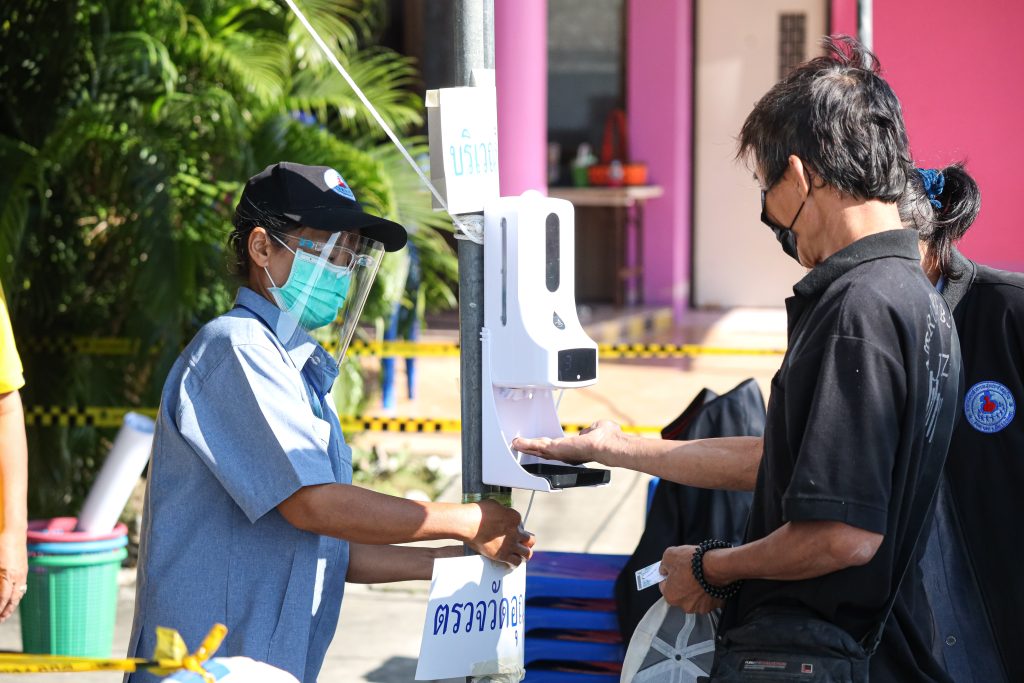
Once we observed how effective the VHVs were during the pandemic, we further recognised them as “the Thai People’s First Doctors”, so that they could feel proud of their work. In Thailand, the word “doctor” (Moh หมอหมอ) can mean not just a medical doctor, but also a person who cures other people suffering from grief and illness, or even hardship. Being conferred with this title energised the VHVs and gave them a sense of ownership over their work. This is under the recent “Three-doctor Policy” of the Ministry of Public Health, which recognises three doctors at three levels. The first doctor is the VHVs at the community level; the second doctor is the health workers of a health-promoting hospital at the sub-district level, and the third doctor is a family medicine doctor at a general hospital at the district level.
There was a lot of synergy between the deployment of VHVs and the use of technology. For instance, everyone has a mobile phone. So medical doctors in the hospitals can perform telemedicine through the VHVs. A medical doctor can make a diagnosis over the phone, and the VHV can collect the prescription from the nearest hospital and deliver advice and medication to the patient at home. This reduces patient congestion in hospitals, which means the medical doctors can better attend to patients who really require close supervision.
The Ministry of Public Health also recognises VHVs by giving them financial security through a sinking fund that compensates their families in the event of death. We understand that VHVs have families whom they might worry about should anything happen to them. So, we try to reduce this anxiety. Whenever an individual VHV dies, the other one million VHVs put half a baht into this public fund, and the fund has disbursed THB 500,000 (approximately USD 15,000) to the families of each deceased VHV.
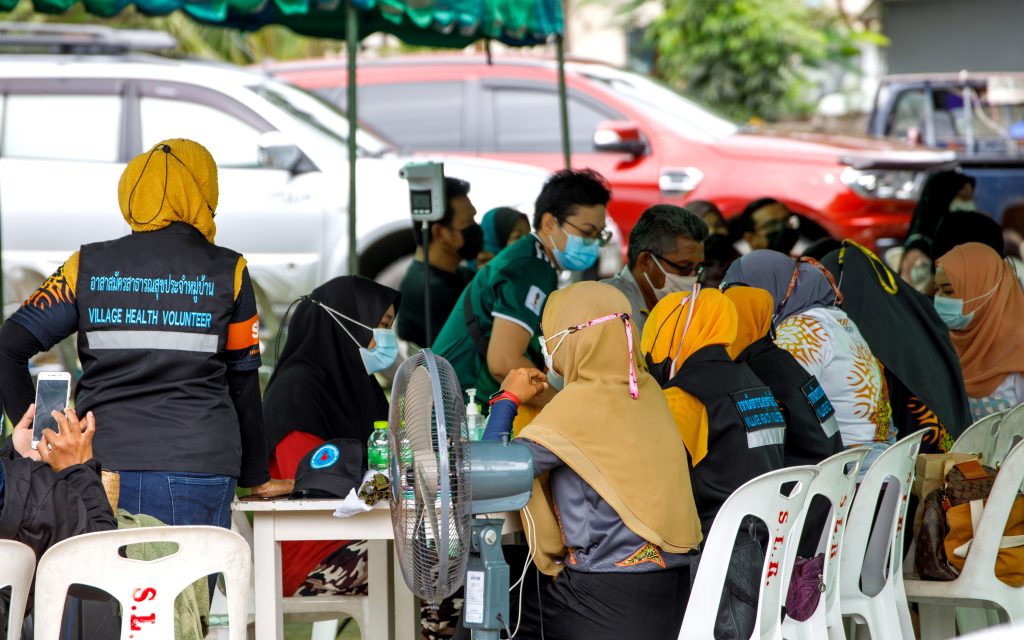
A VHV is an ordinary Thai citizen. Each VHV takes care of about 30 to 40 people. Through them, we can make sure that every Thai person can have a basic understanding and appreciation of good health practices. This helps strengthen our public health system to a very high standard.
How has the Universal Coverage Scheme (UCS) in Thailand evolved to meet the needs of Thai citizens?
When I travelled abroad to meet with my counterparts in public health, they said our UCS is one of the best in the world. Thailand’s UCS is genuinely universal: our people can go to any public hospital whenever they are sick and receive healthcare treatment.
I am probably one of the longest-serving ministers in the Public Health Ministry of Thailand. When I came into office, Thailand already had the UCS but it was not completely universal. My very first policy direction was to ensure that our universal health coverage includes every disease and every Thai person, without exception. Previously, rare diseases and their costly treatments were not covered by UCS. But I said—universal is universal. So, rare diseases are now being covered. Once we adopted the UCS scheme, we had to ensure that everyone is safe. Today, Thai citizens can go to any hospital for treatment. Previously, they could only go to a hospital where they had enrolled. Now we not only provide coverage for every disease, but also offer treatment everywhere.
One service I am proud of bringing under public health coverage is kidney dialysis. Previously, if patients undergoing peritoneal kidney dialysis wanted to switch to haemodialysis, they had to pay about THB 2,000 for each haemodialysis session, perhaps three times a week. That means Thai people with kidney problems who chose haemodialysis would have to spend at least THB 25,000 per month. One doctor in charge of a dialysis facility I visited reported to me that some of these people come only once and then stop, after which they feel that they can no longer bear the expense; they feel they are a burden and would prefer to die. I was stunned. I could not let this happen while I am in charge of this Ministry.
Because I had a good working relationship with my colleagues across the health ministry offices, I was able to do something about this. Right away, I called the Secretary General of the National Health Security Office and asked if we could include self-selection for haemodialysis under universal health coverage. When I presented this case, I received unanimous support from all 33 members of the UCS board for the first time.
This is one of the strengths of the Thai public health system: everybody cares for the big picture, and tries to put aside personal feelings or partisan politics to focus only on the well-being of our people.
What are some capabilities that the Government of Thailand is developing to prepare to face complex public health crises in the future?
I believe that when people have good health and have access to the healthcare system, they feel a personal responsibility to stay healthy. For example, when VHVs are health conscious, they can pass this mindset on to their family members and community.
Family matters in Thai society. In the rural areas of Thailand, when one patient goes to the hospital, five family members follow them. Initially, the VHV, or what we colloquially call the first doctor, visits the patient. If the VHV finds the patient has a fever and symptoms, they call up the doctor in the hospital. The doctors in the hospital then interview the patient, and diagnose and prescribe medication. This significantly reduces the workload at a hospital, as well as costs.
I have also initiated policies to improve self-reliance. The Thai Ministry of Public Health owns the largest pharmaceutical factories in Thailand. The Government Pharmaceutical Organisation (GPO) has access to all pharmaceutical products. As a government body, we can procure licences, pay royalty fees, acquire active pharmaceutical ingredients and manufacture any type of medicine. We have special legal provisions so the GPO does not compete with commercial pharmaceutical manufacturers. When it is a matter of national security and public health, our laws allow us to produce any kind of medicines and vaccines required.
When you are self-reliant, budget is not really an issue. During the pandemic, our main goal was to keep our people safe. The cost of related healthcare services was borne by the government, which provided a budget per capita for patients at each service station. The government spent about USD 12 billion on COVID-related services, and probably only 20% went to private hospitals, which preferred to focus on their regular patients and let the COVID-19 patients be cared for by subsidised government hospitals. So nearly USD 10 billion out of 12 billion spent would have gone to government-owned public hospitals. The majority of funds stayed within the public health system.
Public hospitals in Thailand survive year on year. Any major investments are made by the central government. They tend to be short on funds, with charges from the UCS being their only income. In a province of 30,000 people, they receive a per-capita budget that covers 30,000 people. If there are more patient visits, their budget becomes tight. But because of the pandemic, extra allocations were made to each of these hospitals to help them deal with the crisis. This has allowed hospitals to recover from their financial problems and make investments for the future. For example, many hospitals used part of their COVID funds to procure radiation machines for cancer treatment so they no longer need to transfer cancer patients to other hospitals.
Beyond the loss of life due to COVID-19, which we grieve, I would say the pandemic experience was very helpful to the Public Health Ministry. We were able to address structural financial problems, we strengthened our national foundation of public health, and we learned from the experience in coping with a pandemic—one of the most severe in the history of mankind. We have to take the positive aspects of this pandemic and move on with resolve and readiness.
What led you to be active in the Thai Red Cross Society’s “Heart With Wings Operation” that airlifts donated organs for emergency transplants?
I am a pilot and many of my friends are cardiologists. We have many areas in Thailand that can be accessed only by a weekly flight. I fly with teams of doctors to every part of Thailand, for charity, to deliver donated organs to their recipients in time. It is a mission I feel I cannot refuse, no matter what.
In our culture, the surviving relatives of a deceased patient generally agree to donate their working organs, because it is a chance for the individual who has passed to make one last merit. But we have only a few short hours to make the transfer.
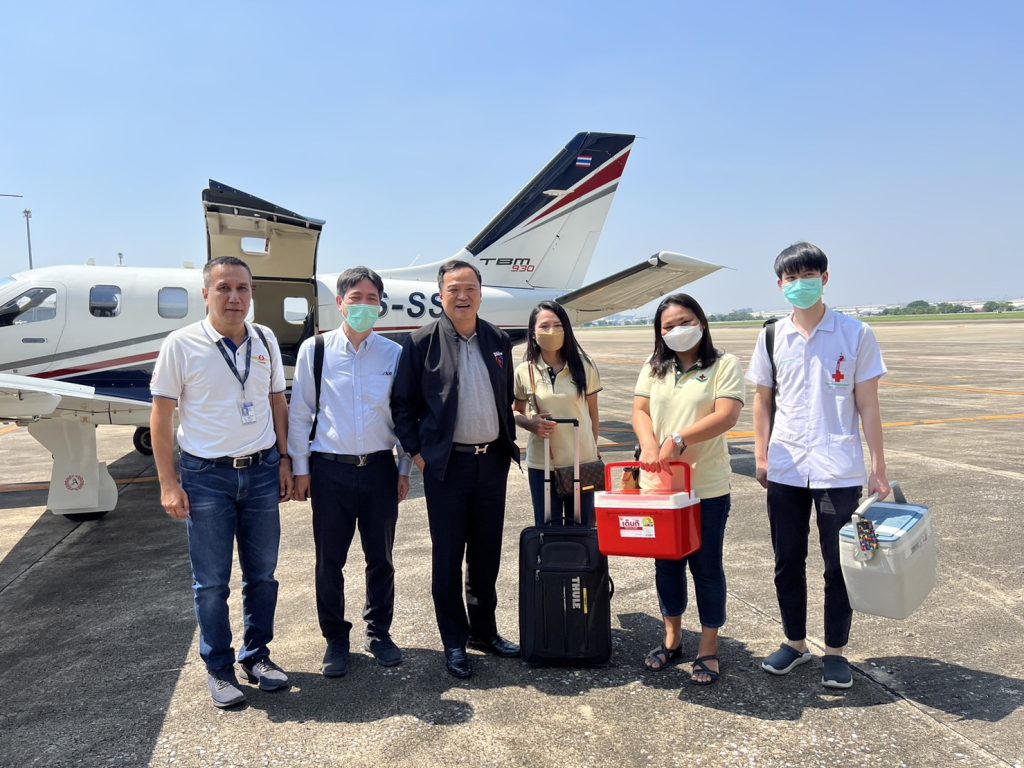
So if this were to happen during the night, or in a city that is not easily accessible, they call me and I fly to bring the donated organs back to Bangkok, where there are many patients waiting for a transplant. We only have a limited timeframe to get the donated organs from the deceased to the patient. In the case of a heart transplant, the timeframe is even tighter at four hours. The sooner the transplant takes place the better.
What has your experience been like working for the Ministry of Public Health?
As a former businessman with an education in engineering, the Public Health Ministry was probably the last workplace I would have chosen. In Thailand, we think that working with medical doctors is probably one of the hardest things to do. When I was appointed as Deputy Minister of Public Health 20 years ago, I felt it was a punishment; that I didn’t belong there. But I was too young to refuse. That was my assignment and so I accepted it.
But after two years in office, I completely changed my mind, and came to believe that I was lucky to work there. I could see how we could make plans and put them into action at once. It satisfied me as an engineer that wants to see what we are building come to fruition.
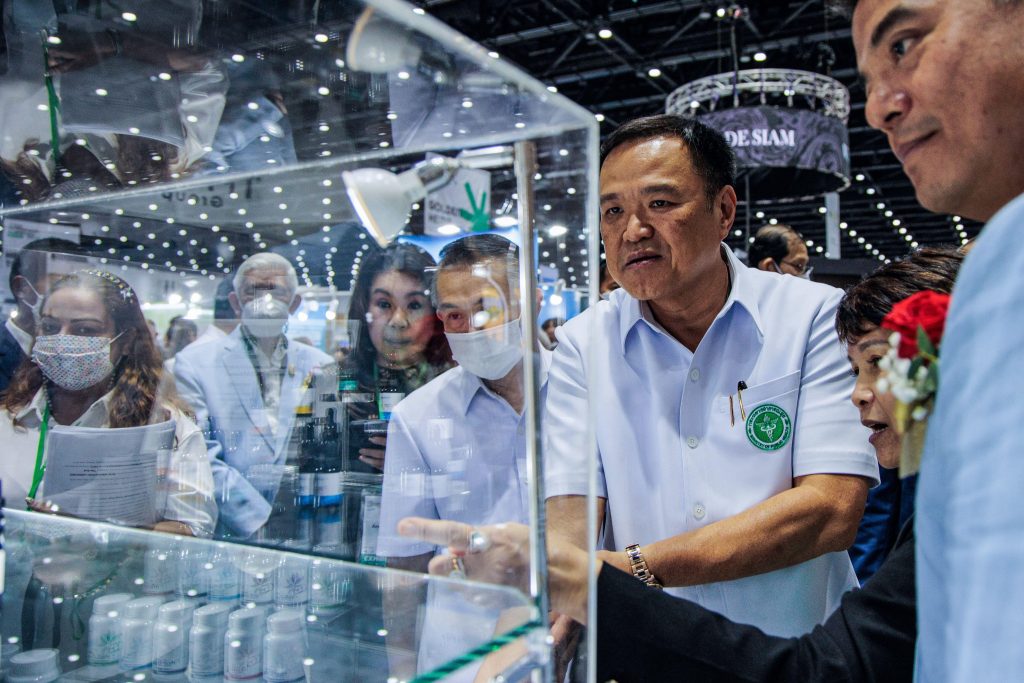
Later on, when I became the party leader and I could choose my portfolio, my first pick was to head the Ministry of Public Health. I have been able to roll out policies such as legalising cannabis, strengthening our foundation for public health, and improving universal health coverage for all.
Despite the COVID-19 pandemic and many other challenges, it has been a good four years (2019–2023). I have been able to get through it all together with my excellent team and colleagues. In many instances, I have been surprised: “Are we really that good?” But we are that good. All of this has come about because of the collective knowledge, experience, and dedication of people in the Public Health Ministry of Thailand. I am proud to be part of it.
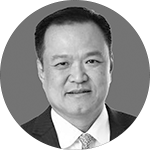
Anutin Charnvirakul
Deputy Prime Minister and Minister of Public Health, Thailand
His Excellency Anutin Charnvirakul has been Thailand’s Deputy Prime Minister and Minister of Public Health since July 2019. He formerly served as Deputy Minister of Public Health from July to October 2004 and March 2005 to September 2006 and as Deputy Minister of Commerce from October 2004 to March 2005. He has been leader of the Bhumjaithai Party since November 2012.
Charnvirakul graduated from Hofstra University, United States with a Bachelor's Degree in Industrial Engineering. He has also been awarded Honorary Doctorate Degrees in several fields, including Civil Engineering, Management, Public Administration, and Economics. He was President of Sino-Thai Engineering and Construction Public Company from March 1995 to June 2004. He also served as Director of the Federation of Thai Industries and Thai Contractors Association under H.M. the King’s patronage.
As Minister of Public Health, he brings over 25 years of experience in business development and organisational management. His priorities in public health are to: “Reduce health expenditures, increase revenue, make people healthy, and make the nation wealthy.” Under his leadership, Thailand is the first country in Asia to legalise medical cannabis.
More Stories


Global Influence & Reputation Country Snapshot: Türkiye
